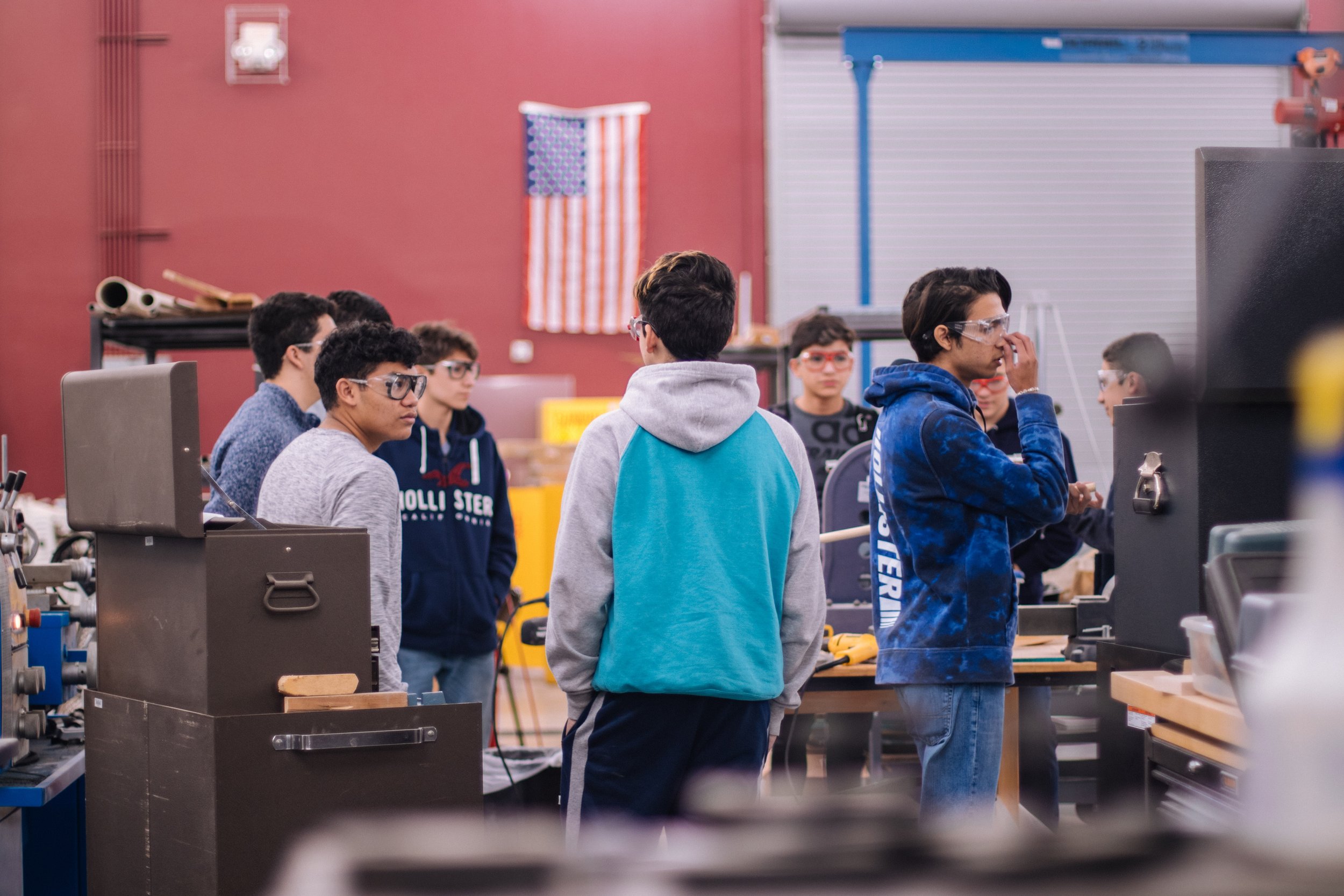
2025 Legislative Priorities
RIBBE’s legislative priorities align with the guiding principles established when forming this organization:
● Equity: Businesses believe that every student – no matter their gender, race, ethnicity, religion, sexual orientation, income, or ability – deserves equitable access to resources and opportunities to ensure that they can reach their full educational potential.
● High Standards & Accountability: Businesses believe that students do their best when all stakeholders – including parents, educators, state and local leaders, labor, and management – are held accountable for students achieving high standards.
● Innovation & Modernization: Businesses believe that students learn in different ways and that we need to push past the status quo to create opportunities for innovation and modernization in curriculum, approach, and infrastructure.
● Support: Businesses believe that students deserve teachers and educators who are fully committed to student success and that students benefit when their teachers have access to high-quality training and professional development.
● Workforce Readiness: Businesses believe that every student should graduate with the skills, knowledge, and credentials that are necessary for success in college or a career, recognizing that most jobs being created in Rhode Island require more than a high school diploma.
Given the challenges Rhode Island’s students and families continue to face, our priorities for 2025 are aligned with advocating for strategic investments and legislation that enhance student outcomes, foster accountability, and strengthen workforce readiness.
School Funding:
RIBBE SUPPORTS state funding strategies which are aimed at improving student outcomes and providing greater accountability as to how K-12 investments are spent. Rhode Island schools have experienced recent large increases in per pupil aid, but student outcomes are still not measuring up.
RIBBE SUPPORTS more equitable state and local funding for K-12 to ensure that all students have access to the resources they need to succeed. Rhode Island needs to address the gap in funding between more affluent districts and schools in the urban core.
Career and Technical Education (CTE):
RIBBE SUPPORTS the continued expansion of CTE into a wide range of fields, including fast-growing and emerging areas of the economy.
RIBBE SUPPORTS enhancing pathways for CTE educators. There is currently only one CTE certification program in the state, and too few incentives to attract industry professionals to become educators.
RIBBE OPPOSES the proposed reduction in categorical funding for CTE programs in Governor McKee’s FY 2026 budget. CTE programs are growing in demand and have proven value for students and communities.
Student Chronic Absenteeism:
RIBBE SUPPORTS Governor McKee’s Attendance Matters initiative, and also additional legislative or administrative initiatives that promote statewide accountability and facilitate evidence-driven strategies for districts and schools to reduce local levels of student absenteeism. While chronic absenteeism has decreased statewide, improvements have been uneven among communities.
High Standards and Accountability:
RIBBE SUPPORTS a continued focus on using high-quality standards and curriculum, and the maintenance of a clear accountability framework, including tools that measure student outcomes.
RIBBE OPPOSES any changes that would weaken or impede recent progress made in establishing these systems.
Teacher Professional Development and Recruitment:
RIBBE SUPPORTS continuing investments that support high-quality and curriculum-driven professional development for educators. For recent investments in high-quality curriculum for math, ELA, and Science to be effective, we must continue to support professional development in these areas.
RIBBE OPPOSES the proposed reduction of professional development funding in Governor McKee’s FY 2026 budget.
RIBBE SUPPORTS state and local efforts to recruit and retain high-quality educators, particularly in high-needs fields such as science, math, special education, and English as a second language.
CONCLUSION
RIBBE stands ready in 2025 to partner with policymakers and stakeholders to advance equitable education policies that prioritize student success, accountability, and workforce readiness.
